Leicester (UK Parliament constituency)
Leicester was a parliamentary borough in Leicestershire, which elected two members of parliament (MPs) to the House of Commons from 1295 until 1918, when it was split into three single-member divisions.
| Leicester | |
|---|---|
| Former Borough constituency for the House of Commons | |
| 1295–1918 | |
| Number of members | Two |
History
Leicester sent burgesses to Parliament for the first time in 1295. Originally both Members were chosen by the whole 'commons' of the borough until at least 1407, when Thomas Denton and John Tonge were stated to have been chosen 'per totam communitatem tocius burgi'. At some unknown date before the middle of the 15th century, however, the 'commons', lost power within the borough and were restricted to the election of just one of the Members, the other being chosen by the mayor and 24 jurats (or aldermen). This situation was reversed by the middle of the sixteenth century.
Although most Members were citizens, usually officials, of the borough there was considerable influence and involvement by the two leading families, the Hastings and the Greys during the 16th and 17th centuries.
The constituency was abolished in 1918 and replaced by Leicester East, Leicester South and Leicester West.
Members of Parliament
1295–1640
| Parliament | First member | Second member |
|---|---|---|
| 1294 | Ralph Norman | Robert de Scarnford[1] |
| 1299 | Robert Knythtecote | Roger de Glenne[1] |
| ?1299 | Richard Donnington | Roger de Glenne[1] |
| 1301 | Ralph Tewe[1] | |
| 1304 | Richard Soning | Nicholas de Glenne[1] |
| 1306 | Ralph Norman | Henry de Carleton[1] |
| 1307 | William Lyndrych | William le Palmer[1] |
| 1308 | Henry Erdington | Richard Eggbaston[1] |
| 1310 | William Lyndrych | Peter de Kent[1] |
| 1311 | William Lyndrych | Robert de Leicester[1] |
| 1312 | William Clowne | Richard Leverych[1] |
| ?1312 | Robert Hereward | Nicholas Mercer[1] |
| 1313 | Roger de Glenne | John Stocton[1] |
| 1314 | William de Benham | Simon de Lyndrych[1] |
| ?1314 | Roger Pickering | William le Palmer[1] |
| 1318 | Thomas Fox | William le Palmer, jnr[1] |
| ?1318 | Henry Palmer | John Derby[1] |
| 1321 | Geoffrey de Staunton | John Derby[1] |
| 1322 | Ralph Burton | Walter Busseby[1] |
| 1326 | William Reddington | William Jolly[1] |
| 1327 | John FitzHenry of Leicester[2] | John Geryn |
| 1328 | Richard Claver | John Leverich[2] |
| 1328 | Richard Claver | John Geryn[1] |
| 1328 | Rad de Seccheville | Robert de Waltham[2] |
| 1329 | John de Glenne | Willim Petlyng[1] |
| 1330 | Richard de Bonyngton | Robert de Gryndon[1] or
William Wareyn[2] |
| 1330 | John de Leverych | Thomas Dawbenny[1] |
| 1332 | Henry Merlins | Richard de Donnington[1] |
| 1332 | William de Cloune | Richard Leverich[2] |
| 1333 | John Leverych | John FitzHenry[1] or
John de Garthorp[2] |
| 1334 | Richard Foxton | Richard Clerk[1] |
| 1334 | John Leverich | Robert de Foston[2] |
| 1336 | John Leverych | John Querndon[1] |
| ?1336 | William Rodington | William le Palmer[1] |
| 1337 | Richard de Donnington | Richard Leycester[1] |
| 1337 | Richard de Donnington | John Martyn[1] |
| 1338 | Richard de Donnington | John Querndon[1] |
| 1338 | Richard de Donnington | John Turvey[1][2] |
| ?1338 | William Palmer | Thomas Fox[1] |
| ?1338 | John Harding | Robert Bonyng[1] |
| 1339 | William Warryn | Thomas Fitz Robert[1] |
| 1339 | William Leverich | Richard de Walcote[2] |
| 1340 | Nicholas Radding | William Fitz Richard[1] |
| ?1340 | Richard Walcote | William Brad[1] |
| ?1340 | Ralph Burton | John Blake[1] |
| 1341 | John le Clerk | William Donnington[1] |
| 1343 | Walter Busseby | William Reddington[1] |
| 1346 | Richard Walcot | William Dunstable[1] |
| 1347 | Richard Beby | Allan Sutton[1] |
| 1348 | John Recenour | William Wakefield[1] |
| 1350 | William Dunstable | Thomas Beby[1] |
| 1351 | William Dunstable | Thomas Beby[1] |
| 1354 | John Martin | John de Hodynges[1] |
| 1355 | William Dunstable | Thomas Beby[1] | |
| 1357 | John de Petlyng | Thomas de Crom.[1] |
| 1360 | Thomas Beby | Roger Belgrave[1] |
| ?1360 | Roger Knyghton | Thomas Beby[1] |
| 1362 | Richard Knyghton | William Burton[1] |
| 1363 | John Peterburgh | Roger Kilby[1] |
| 1365 | William Tabb | John Stafford [1] |
| 1368 | Walter Lynd | Roger de Belgrave[1] |
| 1369 | William Burton | William atte Greene[1] |
| 1371 | William Taillard | Richard de Knyghton[1] |
| 1372 | William atte Greene | Roger Beby[1] |
| 1373 | John Stafford | John Peterburgh[1] |
| 1375 | Henry de Petlyng | Henry de Clipstone[1] |
| 1377 | William Huntedon | John Stafford[1] |
| ?1377 | William Humberstone | William de Thornton[1] |
| 1378 | John Chapman | Andrew Glasewright[1] |
| 1379 | John de Stafford | William Ferrour[1] |
| 1380 | John Sherote | Richard Boyes[1] |
| 1381 | Stephen Chambre | Robert Norton[1] |
| 1382 | John Stafford | Thomas Wakefield[1] |
| ?1382 | Roger Belgrave | Richard Braunston[1] |
| 1383 | Geoffrey Clerk | John Fode[1] |
| 1386 | Geoffrey Clerk | William Morton[1] |
| 1388 (Feb) | Geoffrey Clerk | William Morton[3] |
| 1388 (Sep) | Geoffrey Clerk | John Cook[3] |
| 1390 (Jan) | ?Geoffrey Clerk[3] | |
| 1390 (Nov) | ||
| 1391 | Geoffrey Clerk | Henry Beeby[3] |
| 1393 | Thomas Wakefield | John Houghton[3] |
| 1394 | ?Geoffrey Clerk | Henry Beeby[3] |
| 1395 | Robert Skillington | Henry Beeby[3] |
| 1397 (Jan) | Thomas Wakefield | Roger Humberston[3] |
| 1397 (Sep) | Thomas Bailly | Richard Falconer[3] |
| 1399 | William Bispham | John Church[3] |
| 1401 | John London | Peter Clerk[3] |
| 1402 | ||
| 1404 (Jan) | ||
| 1404 (Oct) | ||
| 1406 | John Donyngton | Roger Goldsmith[3] |
| 1407 | Thomas Denton | John Tonge[3] |
| 1410 | Robert Evington | John Church[3] |
| 1411 | Robert Evington | Ralph Brasier[3] |
| 1413 (Feb) | ||
| 1413 (May) | John Hewet | John Church[3] |
| 1414 (Apr) | Ralph Brasier | Thomas Denton[3] |
| 1414 (Nov) | Henry Forster | Robert Evington[3] |
| 1415 | ||
| 1416 (Mar) | ||
| 1416 (Oct) | ||
| 1417 | ||
| 1419 | Henry Forster | Ralph Brasier[3] |
| 1420 | John Pykwell | John Church[3] |
| 1421 (May) | Ralph Brasier | John Church[3] |
| 1421 (Dec) | Henry Forster | John Nightingale[3] |
| 1423 | Ralph Brasier | [4] |
| 1426 | Ralph Brasier | [4] |
| 1432 | Ralph Brasier | [4] |
| 1455–1456 | Thomas Dalton | |
| 1510–1515 | No names known[5] | |
| 1523 | William Bolt | Roger Wigston[5] |
| 1529 | Thomas Brokesby | Robert Harward[5] |
| 1536 | ? | |
| 1539 | John Beaumont | William Wigston[5] |
| 1542 | Robert Burdett | ?John Beaumont[5] |
| 1545 | Edward Hastings | John Throckmorton[5] |
| 1547 | George Swillington | Ralph Skinner[5] |
| 1553 (Mar) | George Swillington | Robert Cotton[5] |
| 1553 (Oct) | William Faunt | Thomas Farnham[5] |
| 1554 (Apr) | Francis Farnham | Thomas Jenkinson[5] |
| 1554 (Nov) | Francis Farnham | Hugh Aston[5] |
| 1555 | Francis Farnham | ?[5] |
| 1558 | Robert Breham | Maurice Tyttell[5] |
| 1559 (Jan) | John Hastings | Robert Breham[6] |
| 1562/1563 | Robert Breham | Rubert Brokesby[6] |
| 1571 | Thomas Cave | Stephen Hales[6] |
| 1572 (Apr) | Robert Breham | John Stanford I[6] |
| 1584 (Nov) | Henry Skipwith | Thomas Johnson[6] |
| 1586 (Oct) | Henry Skipwith | Thomas Johnson[6] |
| 1588 (Oct) | John Chippendale | Robert Heyrick[6] |
| 1593 | John Stanford I | James Clarke[6] |
| 1597 (Sep) | George Parkins | John Stanford II[6] |
| 1601 (Oct) | George Belgrave | William Herrick[6] |
| 1604 | William Skipwith, died 1610 and replaced by Henry Rich) | Henry Beaumont |
| 1614 | Henry Rich | Sir Francis Leigh |
| 1621–1622 | Sir Richard Moryson | Sir William Herrick |
| 1624 | Sir Humphrey May | William Ive |
| 1625 | Thomas Jermyn | Sir Humphrey May, sat for Lancaster and repl. by Sir George Hastings) |
| 1626 | Sir Humphrey May | Sir George Hastings |
| 1628 | Sir Humphrey May | Sir John Stanhope |
| 1629–1640 | No parliaments summoned | |
1640–1918
Notes
- The election of 1847 was declared void on petition and a by-election was held
Election results
Elections in the 1830s
| Party | Candidate | Votes | % | ||
|---|---|---|---|---|---|
| Tory | Charles Abney-Hastings | Unopposed | |||
| Whig | William Evans | Unopposed | |||
| Registered electors | c. 5,000 | ||||
| Tory hold | |||||
| Whig gain from Tory | |||||
| Party | Candidate | Votes | % | ||
|---|---|---|---|---|---|
| Whig | William Evans | Unopposed | |||
| Radical | Wynne Ellis | Unopposed | |||
| Registered electors | c. 5,000 | ||||
| Whig hold | |||||
| Radical gain from Tory | |||||
| Party | Candidate | Votes | % | ||
|---|---|---|---|---|---|
| Whig | William Evans | 1,663 | 37.3 | ||
| Radical | Wynne Ellis | 1,527 | 34.3 | ||
| Tory | John Ward-Boughton-Leigh[32] | 1,266 | 28.4 | ||
| Turnout | 2,795 | 91.3 | |||
| Registered electors | 3,063 | ||||
| Majority | 136 | 3.0 | |||
| Whig hold | |||||
| Majority | 261 | 5.9 | |||
| Radical hold | |||||
| Party | Candidate | Votes | % | ±% | |
|---|---|---|---|---|---|
| Conservative | Edward Goulburn (MP) | 1,484 | 26.4 | +12.2 | |
| Conservative | Thomas Gladstone | 1,475 | 26.2 | +12.0 | |
| Whig | William Evans | 1,352 | 24.0 | −13.3 | |
| Radical | Wynne Ellis | 1,314 | 23.4 | −10.9 | |
| Majority | 123 | 2.2 | N/A | ||
| Turnout | 2,820 | 92.5 | +1.2 | ||
| Registered electors | 3,049 | ||||
| Conservative gain from Whig | Swing | +9.4 | |||
| Conservative gain from Radical | Swing | +8.7 | |||
| Party | Candidate | Votes | % | ±% | |
|---|---|---|---|---|---|
| Radical | Samuel Duckworth | 1,816 | 27.8 | +16.1 | |
| Radical | John Easthope | 1,816 | 27.8 | +16.1 | |
| Conservative | Edward Goulburn (MP) | 1,454 | 22.2 | −4.2 | |
| Conservative | Thomas Gladstone | 1,453 | 22.2 | −4.0 | |
| Majority | 362 | 5.6 | N/A | ||
| Turnout | 3,270 | 91.6 | −0.9 | ||
| Registered electors | 3,569 | ||||
| Radical gain from Conservative | Swing | +10.1 | |||
| Radical gain from Conservative | Swing | +10.1 | |||
Duckworth resigned after being appointed as Master of the Court of Chancery.
| Party | Candidate | Votes | % | ±% | |
|---|---|---|---|---|---|
| Radical | Wynne Ellis | 1,666 | 54.9 | −0.7 | |
| Conservative | Charles Frewen | 1,371 | 45.1 | +0.7 | |
| Majority | 295 | 9.8 | +4.2 | ||
| Turnout | 3,037 | 84.8 | −6.8 | ||
| Registered electors | 3,581 | ||||
| Radical hold | Swing | −0.7 | |||
Elections in the 1840s
| Party | Candidate | Votes | % | ±% | |
|---|---|---|---|---|---|
| Radical | John Easthope | Unopposed | |||
| Radical | Wynne Ellis | Unopposed | |||
| Registered electors | 4,280 | ||||
| Radical hold | |||||
| Radical hold | |||||
| Party | Candidate | Votes | % | ±% | |
|---|---|---|---|---|---|
| Radical | Joshua Walmsley | 1,671 | 35.5 | N/A | |
| Radical | Richard Gardner | 1,621 | 34.4 | N/A | |
| Conservative | James Parker[33] | 1,421 | 30.2 | New | |
| Majority | 200 | 4.2 | N/A | ||
| Turnout | 3,067 (est) | 72.3 (est) | N/A | ||
| Registered electors | 4,241 | ||||
| Radical hold | Swing | N/A | |||
| Radical hold | Swing | N/A | |||
The election was declared void on petition on 1 June 1848, due to bribery by Walmsley and Gardner's agents, causing a by-election.[34]
| Party | Candidate | Votes | % | ±% | |
|---|---|---|---|---|---|
| Radical | John Ellis | Unopposed | |||
| Radical | Richard Harris | Unopposed | |||
| Radical hold | |||||
| Radical hold | |||||
Elections in the 1850s
| Party | Candidate | Votes | % | ±% | |
|---|---|---|---|---|---|
| Radical | Joshua Walmsley | 1,673 | 30.0 | −5.5 | |
| Radical | Richard Gardner | 1,673 | 30.0 | −4.4 | |
| Whig | James Wilde | 1,116 | 20.0 | New | |
| Whig | Geoffrey Palmer | 1,114 | 20.0 | New | |
| Majority | 557 | 10.0 | +5.8 | ||
| Turnout | 2,788 (est) | 72.4 (est) | +0.1 | ||
| Registered electors | 3,853 | ||||
| Radical hold | Swing | N/A | |||
| Radical hold | Swing | N/A | |||
Gardner's death caused a by-election.
| Party | Candidate | Votes | % | ±% | |
|---|---|---|---|---|---|
| Radical | John Biggs | Unopposed | |||
| Radical hold | |||||
| Party | Candidate | Votes | % | ±% | |
|---|---|---|---|---|---|
| Whig | John Dove Harris | 1,618 | 34.7 | −5.3 | |
| Radical | John Biggs | 1,603 | 34.4 | +4.4 | |
| Radical | Joshua Walmsley | 1,440 | 30.9 | +0.9 | |
| Majority | 15 | 0.3 | N/A | ||
| Turnout | 2,331 (est) | 56.0 (est) | −16.4 | ||
| Registered electors | 4,162 | ||||
| Whig gain from Radical | Swing | −5.3 | |||
| Radical hold | Swing | +3.5 | |||
| Party | Candidate | Votes | % | ±% | |
|---|---|---|---|---|---|
| Liberal | John Biggs | 1,584 | 26.6 | −7.8 | |
| Liberal | Joseph William Noble | 1,496 | 25.1 | N/A | |
| Conservative | William Unwin Heygate | 1,476 | 24.8 | New | |
| Liberal | John Dove Harris | 1,397 | 23.5 | −11.2 | |
| Majority | 20 | 0.3 | 0.0 | ||
| Turnout | 2,977 (est) | 70.8 (est) | +14.8 | ||
| Registered electors | 4,207 | ||||
| Liberal hold | Swing | N/A | |||
| Liberal hold | Swing | N/A | |||
Elections in the 1860s
Noble's death caused a by-election.
| Party | Candidate | Votes | % | ±% | |
|---|---|---|---|---|---|
| Conservative | William Unwin Heygate | 1,596 | 44.3 | +19.5 | |
| Liberal | John Dove Harris | 1,033 | 28.6 | +5.1 | |
| Liberal | Peter Alfred Taylor | 977 | 27.1 | N/A | |
| Majority | 563 | 15.7 | N/A | ||
| Turnout | 3,606 | 90.9 | +20.1 | ||
| Registered electors | 3,965 | ||||
| Conservative gain from Liberal | Swing | +7.2 | |||
Biggs resigned, causing a by-election.
| Party | Candidate | Votes | % | ±% | |
|---|---|---|---|---|---|
| Liberal | Peter Alfred Taylor | Unopposed | |||
| Liberal hold | |||||
| Party | Candidate | Votes | % | ±% | |
|---|---|---|---|---|---|
| Liberal | John Dove Harris | 2,295 | 35.6 | +12.1 | |
| Liberal | Peter Alfred Taylor | 2,199 | 34.2 | +7.6 | |
| Conservative | William Unwin Heygate | 1,945 | 30.2 | +5.4 | |
| Majority | 254 | 4.0 | +3.7 | ||
| Turnout | 4,192 (est) | 88.0 (est) | +17.2 | ||
| Registered electors | 4,762 | ||||
| Liberal hold | Swing | +4.7 | |||
| Liberal hold | Swing | +2.5 | |||
| Party | Candidate | Votes | % | ±% | |
|---|---|---|---|---|---|
| Liberal | Peter Alfred Taylor | 7,148 | 43.3 | +9.1 | |
| Liberal | John Dove Harris | 6,876 | 41.6 | +6.0 | |
| Independent Liberal | John Baker Greene[37][38][39] | 2,494 | 15.1 | New | |
| Majority | 4,382 | 26.5 | +22.5 | ||
| Turnout | 9,506 (est) | 62.7 (est) | −25.3 | ||
| Registered electors | 15,161 | ||||
| Liberal hold | Swing | N/A | |||
| Liberal hold | Swing | N/A | |||
Elections in the 1870s
| Party | Candidate | Votes | % | ±% | |
|---|---|---|---|---|---|
| Liberal | Peter Alfred Taylor | 7,408 | 36.5 | −6.8 | |
| Liberal | Alexander McArthur | 7,283 | 35.9 | −5.7 | |
| Conservative | John Henry Boyer Warner | 5,615 | 27.7 | New | |
| Majority | 1,668 | 8.2 | −18.3 | ||
| Turnout | 12,961 (est) | 75.9 (est) | +13.2 | ||
| Registered electors | 17,069 | ||||
| Liberal hold | Swing | N/A | |||
| Liberal hold | Swing | N/A | |||
Elections in the 1880s
| Party | Candidate | Votes | % | ±% | |
|---|---|---|---|---|---|
| Liberal | Peter Alfred Taylor | 10,675 | 36.7 | +0.2 | |
| Liberal | Alexander McArthur | 10,438 | 35.8 | −0.1 | |
| Conservative | William Winterton | 4,186 | 14.4 | +0.5 | |
| Conservative | John Henry Boyer Warner | 3,820 | 13.1 | −0.8 | |
| Majority | 6,252 | 21.4 | +13.2 | ||
| Turnout | 14,560 (est) | 77.4 (est) | +1.5 | ||
| Registered electors | 18,808 | ||||
| Liberal hold | Swing | −0.2 | |||
| Liberal hold | Swing | +0.4 | |||
Taylor resigned, causing a by-election.
| Party | Candidate | Votes | % | ±% | |
|---|---|---|---|---|---|
| Liberal | James Allanson Picton | Unopposed | |||
| Liberal hold | |||||
| Party | Candidate | Votes | % | ±% | |
|---|---|---|---|---|---|
| Liberal | James Allanson Picton | 11,480 | 39.1 | +2.4 | |
| Liberal | Alexander McArthur | 11,121 | 37.9 | +2.1 | |
| Conservative | William Millican[42] | 6,751 | 23.0 | −4.5 | |
| Majority | 4,370 | 14.9 | −6.5 | ||
| Turnout | 18,104 | 83.5 | +6.1 (est) | ||
| Registered electors | 21,671 | ||||
| Liberal hold | Swing | +2.4 | |||
| Liberal hold | Swing | +2.2 | |||
| Party | Candidate | Votes | % | ±% | |
|---|---|---|---|---|---|
| Liberal | James Allanson Picton | 9,914 | 39.2 | +0.1 | |
| Liberal | Alexander McArthur | 9,681 | 38.3 | +0.4 | |
| Liberal Unionist | Robert Bickersteth | 5,686 | 22.5 | −0.5 | |
| Majority | 3,995 | 15.8 | +0.9 | ||
| Turnout | 15,456 | 71.3 | −12.2 | ||
| Registered electors | 21,671 | ||||
| Liberal hold | Swing | +0.2 | |||
| Liberal hold | Swing | +0.3 | |||
Elections in the 1890s
| Party | Candidate | Votes | % | ±% | |
|---|---|---|---|---|---|
| Liberal | James Allanson Picton | Unopposed | |||
| Liberal | James Whitehead | Unopposed | |||
| Liberal hold | |||||
| Liberal hold | |||||
Both Picton and Whitehead resigned, requiring a by-election.
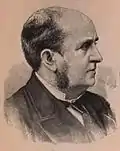
| Party | Candidate | Votes | % | ±% | |
|---|---|---|---|---|---|
| Lib-Lab | Henry Broadhurst | 9,464 | 33.8 | N/A | |
| Liberal | Walter Hazell | 7,184 | 25.6 | N/A | |
| Conservative | John Rolleston | 6,967 | 24.9 | New | |
| Ind. Labour Party | Joseph Burgess | 4,402 | 15.7 | New | |
| Majority | 217 | 0.7 | N/A | ||
| Turnout | 17,853 (est) | 77.2 | N/A | ||
| Registered electors | 23,125 | ||||
| Lib-Lab hold | Swing | N/A | |||
| Liberal hold | Swing | N/A | |||
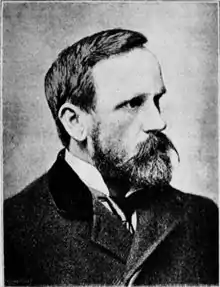
| Party | Candidate | Votes | % | ±% | |
|---|---|---|---|---|---|
| Lib-Lab | Henry Broadhurst | 9,792 | 33.6 | N/A | |
| Liberal | Walter Hazell | 7,753 | 26.5 | N/A | |
| Conservative | John Rolleston | 7,654 | 26.2 | N/A | |
| Ind. Labour Party | Joseph Burgess | 4,009 | 13.7 | N/A | |
| Majority | 99 | 0.3 | N/A | ||
| Turnout | 18,856 (est) | 77.2 | N/A | ||
| Registered electors | 24,113 | ||||
| Lib-Lab hold | Swing | N/A | |||
| Liberal hold | Swing | N/A | |||
Elections in the 1900s
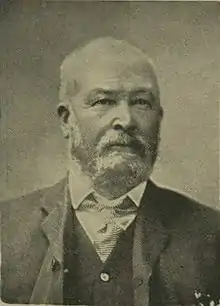
| Party | Candidate | Votes | % | ±% | |
|---|---|---|---|---|---|
| Lib-Lab | Henry Broadhurst | 10,385 | 32.3 | −1.3 | |
| Conservative | John Rolleston | 9,066 | 28.2 | +2.0 | |
| Liberal | Walter Hazell | 8,528 | 26.5 | +0.0 | |
| Labour Repr. Cmte. | Ramsay MacDonald | 4,164 | 13.0 | N/A | |
| Turnout | 32,143 | 83.3 | +5.1 | ||
| Registered electors | 24,962 | ||||
| Majority | 6,221 | 19.3 | +19.0 | ||
| Lib-Lab hold | Swing | −1.7 | |||
| Majority | 538 | 1.7 | N/A | ||
| Conservative gain from Liberal | Swing | +1.0 | |||
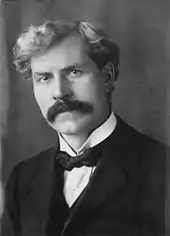
| Party | Candidate | Votes | % | ±% | |
|---|---|---|---|---|---|
| Lib-Lab | Henry Broadhurst | 14,745 | 39.9 | +7.6 | |
| Labour Repr. Cmte. | Ramsay MacDonald | 14,685 | 39.8 | +26.8 | |
| Conservative | John Rolleston | 7,504 | 20.3 | −7.9 | |
| Turnout | 36,934 | 88.9 | +5.6 | ||
| Registered electors | 25,129 | ||||
| Majority | 7,241 | 19.6 | +0.3 | ||
| Lib-Lab hold | Swing | +7.8 | |||
| Majority | 7,181 | 19.5 | N/A | ||
| Labour Repr. Cmte. gain from Conservative | Swing | +17.4 | |||
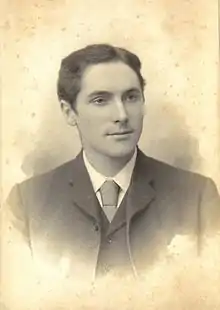
| Party | Candidate | Votes | % | ±% | |
|---|---|---|---|---|---|
| Liberal | Franklin Thomasson | 10,766 | 59.9 | +20.0 | |
| Conservative | John Rolleston | 7,206 | 40.1 | +19.8 | |
| Majority | 3,560 | 19.8 | +0.2 | ||
| Turnout | 17,972 | 71.5 | −17.4 | ||
| Registered electors | 25,129 | ||||
| Liberal hold | Swing | +0.1 | |||
Elections in the 1910s
| Party | Candidate | Votes | % | ±% | |
|---|---|---|---|---|---|
| Liberal | Eliot Crawshay-Williams | 14,643 | 32.0 | −7.9 | |
| Labour | Ramsay MacDonald | 14,337 | 31.4 | −8.4 | |
| Conservative | J. Foster Fraser | 8,548 | 18.7 | +8.5[n 1] | |
| Conservative | Edward Bagley | 8,192 | 17.9 | +7.7[n 1] | |
| Turnout | 45,720 | 91.8 | +2.9 | ||
| Registered electors | 25,336 | ||||
| Majority | 6,095 | 13.3 | −6.3 | ||
| Liberal hold | Swing | −8.2 | |||
| Majority | 5,789 | 12.7 | −6.8 | ||
| Labour hold | Swing | −8.0 | |||
| Party | Candidate | Votes | % | ±% | |
|---|---|---|---|---|---|
| Liberal | Eliot Crawshay-Williams | 13,238 | 39.2 | +7.2 | |
| Labour | Ramsay MacDonald | 12,998 | 38.5 | +7.1 | |
| Conservative | Alured Myddelton Wilshere | 7,547 | 22.3 | −14.3 | |
| Turnout | 33,783 | 83.5 | -8.3 | ||
| Registered electors | 25,336 | ||||
| Majority | 5,691 | 16.9 | +3.6 | ||
| Liberal hold | Swing | +11.0 | |||
| Majority | 5,451 | 16.2 | +3.5 | ||
| Labour hold | Swing | +10.7 | |||
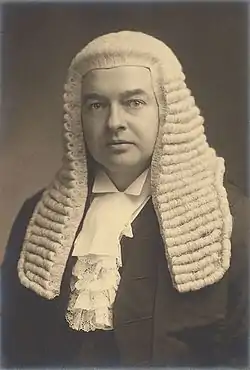
| Party | Candidate | Votes | % | ±% | |
|---|---|---|---|---|---|
| Liberal | Gordon Hewart | 10,863 | 47.8 | +8.6 | |
| Unionist | Alured Myddelton Wilshere | 9,279 | 40.8 | +18.5 | |
| British Socialist Party | Edward Hartley | 2,580 | 11.4 | New | |
| Turnout | 22,722 | 84.2 | +0.7 | ||
| Registered electors | 26,972 | ||||
| Liberal hold | Swing | -4.9 | |||
Notes and References
Notes
- Calculated from half of 1906 result
References
- Curtis, John. A Topographical History of the County of Leicester. p. 97.
- Leicester (England); Bateson, Mary; Chinnery, Gilbert Allen; Stevenson, William Henry; Stocks, John Edward; Stocks, Helen (1899–1974). Records of the borough of Leicester; being a series of extracts from the archives of the Corporation of Leicester. University of California Libraries. London : C. J. Clay.
- "History of Parliament". Retrieved 19 September 2011.
- "BRASIER, alias HUMBERSTON, Ralph, of Leicester. | History of Parliament Online".
- "History of Parliament". Retrieved 19 September 2011.
- "History of Parliament". Retrieved 19 September 2011.
- Stooks Smith, Henry. (1973) [1844–1850]. Craig, F. W. S. (ed.). The Parliaments of England (2nd ed.). Chichester: Parliamentary Research Services. pp. 192–194. ISBN 0-900178-13-2.
- "General Election, 1841". Morning Post. 29 June 1841. pp. 2–4. Retrieved 15 November 2018 – via British Newspaper Archive.
- "Election News". Northern Star and Leeds General Advertiser. 10 July 1841. p. 23. Retrieved 15 November 2018 – via British Newspaper Archive.
- Churton, Edward (1838). The Assembled Commons or Parliamentary Biographer: 1838. pp. 74, 79.
- "Nottingham Review and General Advertiser for the Midland Counties". 25 August 1837. p. 4. Retrieved 15 November 2018 – via British Newspaper Archive.
- Zuch, Ronald K.; Ziegler, Paul R. (1985). "The Little Charter". Joseph Hume: The People's M.P. Ephrata: The American Philosophical Society. p. 147. ISBN 0871691639. Retrieved 15 April 2018.
- Collins, Neil (1994). Politics and Elections in Nineteenth-Century Liverpool. Abingdon: Scolar Press. p. 40. ISBN 9781859280768. Retrieved 15 April 2018.
- "Postscript". Coventry Herald. 9 February 1849. p. 4. Retrieved 15 April 2018 – via British Newspaper Archive.
- Wigley, John (1980). The Rise and Fall of the Victorian Sunday. Manchester: Manchester University Press. p. 94. ISBN 0-7190-0794-1. Retrieved 15 May 2018.
- "Leicester". Staffordshire Advertiser. 31 July 1847. p. 6. Retrieved 15 May 2018 – via British Newspaper Archive.
- "The Elections". Daily News. 30 July 1847. pp. 3–6. Retrieved 15 May 2018 – via British Newspaper Archive.
- McKinley, R A, ed. (1958). "The City of Leicester: Parliamentary history since 1835". A History of the County of Leicester. British History Online. 4: 210–250. Retrieved 15 May 2018.
- Dod, Charles Roger; Dod, Robert Phipps (1847). Dod's Parliamentary Companion, Volume 15. Dod's Parliamentary Companion. p. 170. Retrieved 15 May 2018.
- "The Leicester Election". Leicestershire Mercury. 9 September 1848. pp. 2–3. Retrieved 15 May 2018 – via British Newspaper Archive.
- "Latest Intelligence". Exeter and Plymouth Gazette. 9 September 1848. p. 8. Retrieved 15 May 2018 – via British Newspaper Archive.
- "Leicester Election". Berkshire Chronicle. 9 September 1848. p. 1. Retrieved 15 May 2018 – via British Newspaper Archive.
- Newitt, Ned. "John Biggs". The Who's Who of Radical Leicester. Retrieved 15 May 2018.
- "Art and sculpture". Friends of New Walk. Retrieved 15 May 2018.
- Moore, James R. (2017). "Leicester Liberalism: An Uneasy Alliance". The Transformation of Urban Liberalism: Party Politics and Urban Governance in Late Nineteenth-Century England. Routledge. p. 89. ISBN 9781351126038.
- Quinn, P L (2017). Felix Holt, the True Story: Resolving the 150-year mystery of George Eliot's classic novel. Lulu.com. p. 250. ISBN 978-0-244-61150-7.
- "Leicester Election". Nairnshire Telegraph and General Advertiser for the Northern Counties. 25 June 1856. p. 2. Retrieved 15 May 2018 – via British Newspaper Archive.
- "Electioneering Movements". Coventry Herald. 20 March 1857. p. 4. Retrieved 15 May 2018 – via British Newspaper Archive.
- "Election Intelligence". Morning Post. 25 March 1857. p. 3. Retrieved 15 May 2018 – via British Newspaper Archive.
- Harratt, Simon. "Leicester". The History of Parliament. Retrieved 16 April 2020.
- Craig, F. W. S., ed. (1977). British Parliamentary Election Results 1832-1885 (e-book)
|format=requires|url=(help) (1st ed.). London: Macmillan Press. ISBN 978-1-349-02349-3. - "Borough Election". Leicester Journal. 14 December 1832. p. 3. Retrieved 16 April 2020 – via British Newspaper Archive.
- "Borough Election". Leicester Journal. 30 July 1847. pp. 1–2. Retrieved 15 November 2018 – via British Newspaper Archive.
- "Wolverhampton Chronicle and Staffordshire Advertiser". 7 June 1848. p. 1. Retrieved 15 November 2018 – via British Newspaper Archive.
- "The General Election". Manchester Courier and Lancashire General Advertiser. 10 July 1852. pp. 7–8. Retrieved 17 May 2018 – via British Newspaper Archive.
- "Nottingham Journal". 9 July 1852. p. 8. Retrieved 17 May 2018 – via British Newspaper Archive.
- "Borough Election". Leicester Journal. 13 November 1868. p. 6. Retrieved 21 February 2018 – via British Newspaper Archive.
- "Borough Election". Leicester Journal. 20 November 1868. p. 6. Retrieved 21 February 2018 – via British Newspaper Archive.
- "The Polling". Leicester Chronicle. 21 November 1868. p. 3. Retrieved 21 February 2018 – via British Newspaper Archive.
- "The General Election". London Evening Standard. 31 March 1880. pp. 2–3. Retrieved 3 December 2017 – via British Newspaper Archive.
- Craig, FWS, ed. (1974). British Parliamentary Election Results: 1885-1918. London: Macmillan Press. ISBN 9781349022984.
- "The Elections". Daily News. 27 November 1885. pp. 5–6. Retrieved 3 December 2017 – via British Newspaper Archive.
- David Howell, British workers and the Independent Labour Party, 1888–1906, p.233
- David Howell, British workers and the Independent Labour Party, 1888–1906, p.237
- Liberal Yearbook 1916, p.287
- The New Hazell Annual (1917), p.191
- D. Brunton & D. H. Pennington, Members of the Long Parliament (London: George Allen & Unwin, 1954)
- Cobbett's Parliamentary history of England, from the Norman Conquest in 1066 to the year 1803. London: Thomas Hansard. 1808. Archived from the original on 4 September 2015.
- The Constitutional Year Book for 1913 (London: National Union of Conservative and Unionist Associations, 1913)
- F W S Craig, British Parliamentary Election Results 1832–1885 (2nd edition, Aldershot: Parliamentary Research Services, 1989)
- J E Neale, The Elizabethan House of Commons (London: Jonathan Cape, 1949)
- J Holladay Philbin, Parliamentary Representation 1832 – England and Wales (New Haven: Yale University Press, 1965)
- Leigh Rayment's Historical List of MPs – Constituencies beginning with "L" (part 2)